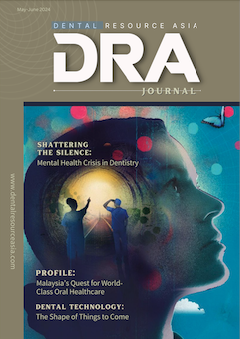USA: New Harvard School of Dental Medicine research, sponsored by the Delta Dental Institute and published in JAMA Health Forum, has revealed that expanding the dental workforce in underserved communities through the National Health Service Corps (NHSC) can lead to improved health outcomes and reduced costs.
The study, led by Dr Sung En Choi, SM, PhD, examined the cost-effectiveness of increasing dental practitioners in Oral Health Professional Shortage Areas (HPSA) and found that more clinicians in these areas would lower the risk of dental caries among children and address disparities in social and economic determinants of oral health.
“Our analysis suggests that expanding the dental workforce through the NHSC would reduce the burden of dental caries among children in underserved areas and address disparities in the social and economic determinants of oral health,” said Dr Choi, instructor in Oral Health Policy and Epidemiology at the Harvard School of Dental Medicine.
Expansion of Dental Workforce Critical
 Click to Visit website of India's Leading Manufacturer of World Class Dental Materials, Exported to 90+ Countries.
Click to Visit website of India's Leading Manufacturer of World Class Dental Materials, Exported to 90+ Countries.
Currently, almost 20,000 medical and dental clinicians serve at NHSC-approved sites in urban, rural, and tribal communities. However, with 65.8 million Americans residing in HPSAs and more than 10,600 dental practitioners required to meet demand, expansion of the dental workforce is critical to improving oral health in underserved areas.
The Delta Dental Institute, in response to this research, launched a new campaign aimed at increasing the number of oral health professionals from historically underrepresented groups. The campaign’s focus is on producing actionable solutions through data-driven research, with these findings providing a concrete example of how expanding the dental workforce can improve health outcomes.
The NHSC is a federally-funded program that offers scholarship and loan programs to medical and dental students who commit to serving in HPSAs after completing their education and training. The program serves as a valuable tool for addressing the shortage of dental professionals in underserved areas and improving access to care for vulnerable populations.
<< Back to Contents Menu
EDITOR’S PAGE | MESSAGE FROM THE CHAIR | NEWS | PRODUCTS | FEATURE ARTICLES | CLINICAL | Q&A | EXHIBITIONS & CONFERENCES | SLEEP APNOEA
About Harvard School of Dental Medicine
The Harvard School of Dental Medicine is one of the leading dental schools in the country, offering education and training to clinicians, educators, researchers, and leaders in the dental profession.
With a focus on musculoskeletal-disease research and epidemiological research, the school provides students with public health opportunities in local communities and across the globe. The school also offers direct patient care, with the Harvard Dental Center seeing over 25,000 patients for over 57,000 dental visits every year.
About Delta Dental Institute
The Delta Dental Institute is committed to promoting oral health for all Americans in collaboration with Delta Dental companies and dedicated partners throughout the nation.
Leveraging Delta Dental’s extensive history of leadership in oral health, it facilitates and endorses research, community outreach, and advocacy efforts, with the aim of raising awareness about the crucial role of oral health in overall wellbeing, and ensuring that everyone can access the care they require.
The information and viewpoints presented in the above news piece or article do not necessarily reflect the official stance or policy of Dental Resource Asia or the DRA Journal. While we strive to ensure the accuracy of our content, Dental Resource Asia (DRA) or DRA Journal cannot guarantee the constant correctness, comprehensiveness, or timeliness of all the information contained within this website or journal.
Please be aware that all product details, product specifications, and data on this website or journal may be modified without prior notice in order to enhance reliability, functionality, design, or for other reasons.
The content contributed by our bloggers or authors represents their personal opinions and is not intended to defame or discredit any religion, ethnic group, club, organisation, company, individual, or any entity or individual.

